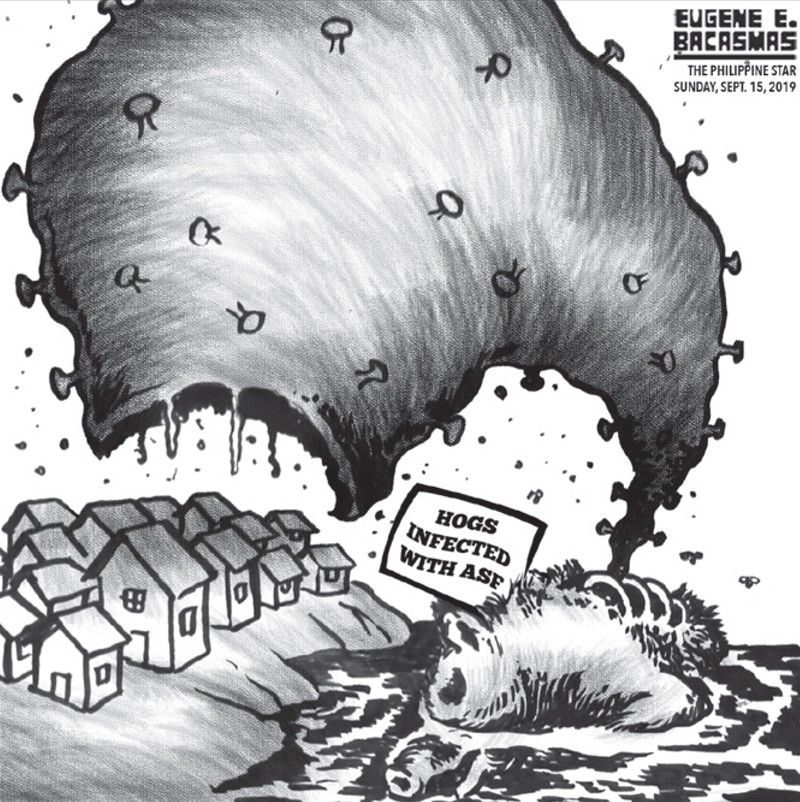EDITORIAL - Not in their backyard

It’s an ugly mindset – the idea that it’s OK to dump one’s trash and other discarded items indiscriminately, as long as it’s not in one’s own backyard.
This is one explanation for the proliferation of dead pigs in creeks and rivers in Marikina and other areas. As of 3 p.m. on Friday, 55 dead pigs, some of which were bloated and decomposing, had been retrieved from waters in the city. In Bulacan’s capital Malolos City, 10 bloated dead pigs were also found floating in a creek, while three were found in a waterway in Barangay Bagong Silangan, Quezon City.
This cannot be attributed to lack of information on the risks of improper disposal of hogs that have died of unknown causes. For several weeks now, there has been extensive reporting on all media platforms, in Filipino and English, about the presence of African swine fever in the Philippines. Agriculture officials have issued numerous warnings and pointers on ASF symptoms and what to do in case of contact with an infected swine.
While ASF is harmless to humans and thorough cooking can kill the virus in infected pork, the affliction is highly contagious to swine and can decimate the local hog industry. This in turn can push up pork prices and dampen celebration this Christmas season.
Even vehicles that transport hogs can serve as carriers of the virus. Humans that touch infected hogs can transfer the virus to piggeries in neighboring provinces. Bodies of water used as dumping ground for hogs that died of ASF are virtually transformed into biological poison.
Marikina officials have pointed out that there are no backyard piggeries in the city, so those 55 dead pigs must have come a long way from elsewhere. Whether or not the hogs died of ASF, their decomposing carcasses have contaminated waters that are used in some areas for bathing and doing the laundry. Other animals – including pigs – could drink from the contaminated waters.
This could turn into a rapidly spreading livestock disaster that will affect the country’s food security. About 65 percent of the country’s pork supply comes from backyard piggeries. Local government executives and barangay officials should not wait for a full-blown crisis to hit them in the face. They should stop the indiscriminate, irresponsible disposal of dead pigs.
- Latest
- Trending






















